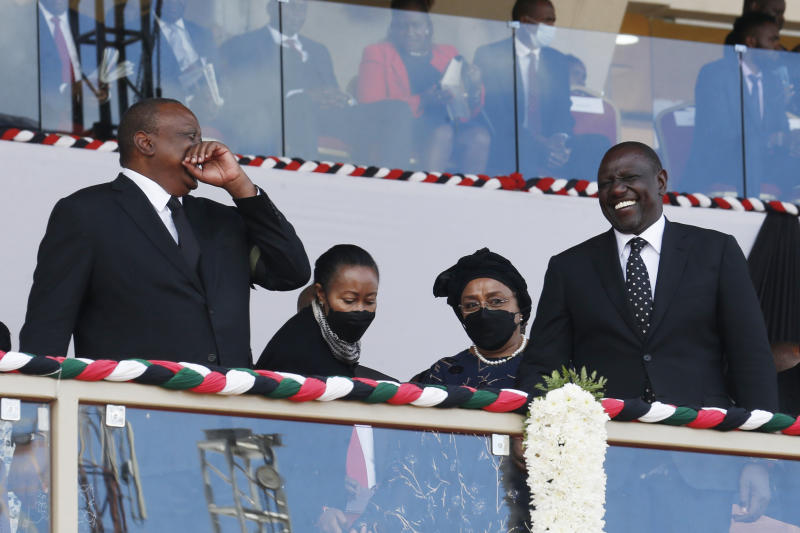×
The Standard e-Paper
Home To Bold Columnists

President Uhuru Kenyatta chats with his deputy William Ruto during former President Mwai Kibaki's State Funeral Service at Nyayo National Stadium on April 29, 2022. [Stafford Ondego, Standard]
If William Ruto wants to be president, he must endure the process of being made one. An African sage said in a roverb that “Patience is the mother of a beautiful child.” To those aspiring to be leaders, outward aggression is no longer fashionable—not in this age.